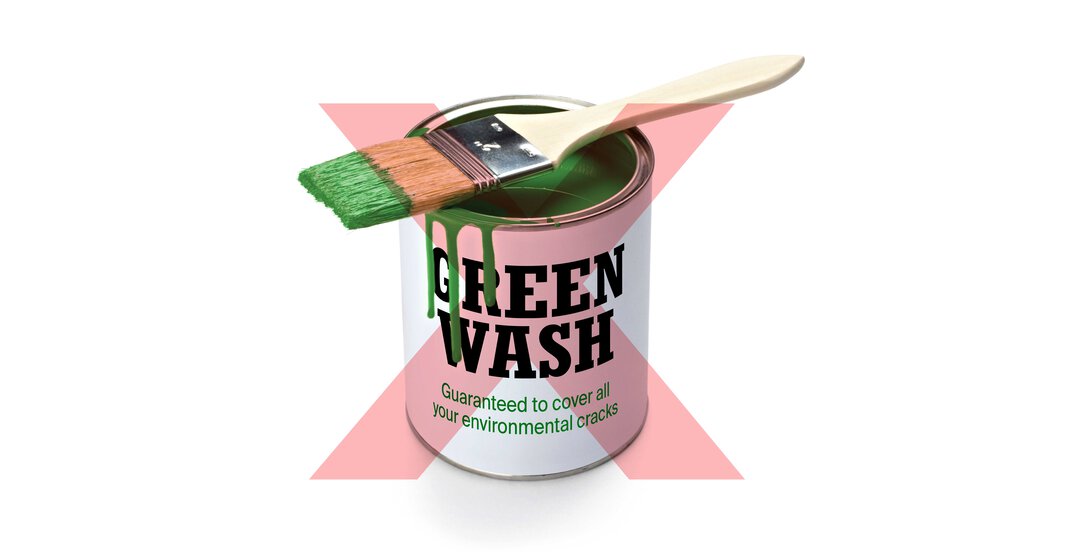EU takes steps to empower consumers for the green transition

Shielding consumers from greenwashing and misleading environmental claims constitutes an important aspect of the European Union’s strategy to cultivate a more environmentally sustainable economy. A European Commission study in 2020 revealed that more than 50% of environmental claims within the EU were unclear or misleading, with 40% lacking substantiation.
Commencing in 2022, the EU has undertaken a revision of current legislation to enhance consumer empowerment in the realm of the green transition, focusing on fortifying protection against unfair commercial practices and augmenting informational resources. These regulatory adjustments collectively aim to furnish consumers with the means to make well-informed and environmentally conscious choices through better quality information.
From a business standpoint, the intention is that genuine efforts to enhance product sustainability will garner recognition and consumer reward, potentially leading to increased sales. This approach aims to create an equitable competitive landscape for the dissemination of environmental performance information for products.
Provisional agreement on enhanced consumer protections towards the green transition
On 17 January 2024, the European Parliament formally endorsed its provisional agreement with the Council on the Directive Empowering Consumers for the Green Transition through Better Protection against Unfair Practices and Better Information (the “Green Transition Directive”). The new directive aims at enhancing consumer rights by amending two directives that protect the interests of consumers at Union level: the Unfair Commercial Practices Directive 2005/29/EC (UCPD) and the Consumer Rights Directive 2011/83/EU (CRD). The new directive is also meant to work together with the Green Claims Directive, currently being discussed at committee stage in the European Parliament.
The CRD currently requires traders to provide consumers with information on the main characteristics of their goods and services. However, as there is no requirement in the directive to provide information on the absence of commercial guarantees of durability, the CRD does not sufficiently incentivise producers to provide such guarantees to consumers. Furthermore, the CRD does not contain specific requirements to provide information to consumers on the reparability of goods. The Green Transition Directive would address these issues by ensuring that consumers are provided with information on the existence of a commercial guarantee of durability of more than two years, covering the entire product, whenever such information is made available by the producer, and with information on the reparability of products, through a reparability score or other relevant repair information, where available, for all types of goods.
The general rules in the UCPD on misleading practices can be applied to greenwashing practices when they negatively affect consumers, using a case-by-case assessment. However, neither the UCPD nor its Annex I (the blacklist) contain specific rules defining such practices as unfair in all circumstances. The Green Transition Directive aims to enhance the transparency and reliability of product labelling by prohibiting the utilisation of general environmental claims such as “environmentally friendly,” , “green”, “natural,” “biodegradable,” “climate neutral,” or “eco” without substantiating evidence. Furthermore, the regulation will govern the use of sustainability labels to address the confusion stemming from their widespread adoption and inadequate reliance on comparative data. Henceforth, only sustainability labels rooted in official certification schemes or established by public authorities will be permissible within the European Union. Moreover, the directive will ban claims that a product possesses a neutral, reduced, or positive impact on the environment due to emissions offsetting schemes.
To sum up, the Green Transition Directive aims to enhance consumer information and combat deceptive practices in marketing. This includes disclosing the producer’s durability guarantee for all goods, providing details on free software updates for digital products, and indicating product reparability through scores or relevant repair information. Traders are mandated to avoid misleading consumers on environmental and social impacts, durability, and reparability. Restrictions are placed on making future environmental performance claims without clear commitments and advertising common market practices as unique benefits. Comparisons between products are allowed only with transparent information, and the display of sustainability labels without certification is prohibited. The regulations also ban generic environmental claims without demonstrating excellent performance as per relevant regulations. Claims about the entire product are restricted to the specific aspect concerned. Additionally, presenting legal requirements as distinctive features and engaging in practices related to early product obsolescence are prohibited.
Given that the Green Transition Directive modifies prevailing EU consumer law directives, its provisions will benefit from the comprehensive array of enforcement mechanisms available in current EU consumer law, recently strengthened by the Better enforcement and modernisation Directive, the Representative Actions Directive and the revised Consumer Protection Cooperation Regulation.
Next steps
Following the current stage, formal approval by the Council is required for the Green Transition Directive before it can be officially published in the EU’s Official Journal. Subsequently, member states will be allotted a 24-month period to incorporate it into their national laws. Enforcement of these measures will take effect six months later, totalling 30 months from the directive’s official commencement.
The Green Claims Directive
In March 2022, the European Commission presented a draft proposal on the substantiation and communication of explicit environmental claims. The Green Claims Directive will complement the Directive on Empowering Consumers for the Green Transition, offering more specific conditions regarding the substantiation and communication of environmental claims. According to the proposal, companies will have to back up environmental information with evidence, as all claims they make about environmental aspects or performance of their products must be based on scientific and verifiable methods.
The scope of the proposed directive is so-called “explicit environmental claims” made by traders about products or traders in business-to-consumer commercial practices, except those already regulated by other EU regulations. The latter means that if EU legislation establishes more specific rules on environmental claims for a particular sector or product category, such as the ‘EU Ecolabel’ (the official EU label for environmentally friendly products), or the EU energy efficiency label, those rules will prevail over those of the proposed directive.
Under the proposal, claims are perceived as sufficiently explicit if they are in writing or contained in an environmental label, brand names, company names or product names. An example of claims covered by the proposal could be “packaging made of 30% recycled plastics”, or a “commitment to reduce CO2-emissions linked to the production of this product by 50% by 2030 as compared to 2020”.
The Green Claims Directive includes criteria stipulating that environmental assertions must be accompanied by detailed information about the business (e.g., via a QR code per Article 5). Simultaneously, the business is required to conduct a self-assessment to substantiate and certify the environmental claims used. The proposal outlines specific requirements for such an assessment, while Article 11 anticipates the establishment of a verification or certification process in member states. This process involves the independent and publicly accredited third-party verification of businesses’ self-assessments and documentation.
Sanctions
Should the proposed Green Claims Directive be adopted in its current iteration, member states will be compelled to implement national regulations specifying robust sanctions for infringements of the ‘’green claims’’ rules, encompassing both incentives and penalties as regulatory instruments. Legitimate environmental claims will be rewarded, while deceptive or incomplete environmental claims will face stringent sanctions.
Article 13 of the Green Claims Directive, read in conjunction with Article 17, mandates that sanctions should be proportionate and reasonably related to the infringements, including fines that effectively deprive the wrongdoer of the economic benefits derived from the violation. These penalties may encompass measures such as the confiscation of proceeds from products falsely marketed as environmentally friendly, temporary exclusion from public procurement procedures, and denial of access to public financing.
Wikborg Rein's monthly ESG alerts will cover key developments on topics of relevance under the ESG umbrella. The WR ESG alerts intend to offer a focused perspective on environmental and social issues, emphasising material developments and their implications. However, this may not encompass all aspects of the broader ESG spectrum and will generally not cover governance-related updates.
The WR ESG alerts primarily cover regulatory developments within Norway and the EU. We endeavour to keep you informed about the evolving landscape of ESG regulations, although it is essential to verify and cross-reference information, considering the dynamic nature of regulatory environments. Please note that the information shared in the WR ESG alerts is for informational purposes only and should not be construed as legal advice.

